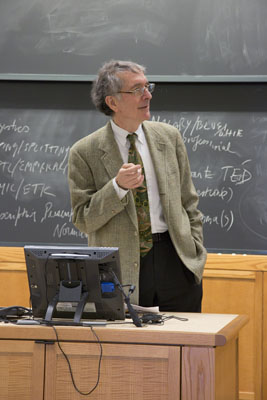
At public universities, it seems generally understood that anything communicated through the university email system is subject to inspection. The question posed today is: Did Harvard University, whose position on the question of privacy seems more ambiguous, make the right decision to secretly search the email accounts of 16 resident deans without first informing them? The Harvard investigators were looking for information related to a leak about the University’s cheating scandal in which about half the students in an undergraduate spring class called “Introduction to Congress” were thought to have been involved. As reported in the Boston Globe on March 10, the deans whose emails were searched were informed of Harvard’s actions on March 9, almost six months after the search took place. Was this an extraordinary circumstance in which Harvard University had no other option? Perhaps they concluded it was. ¿Hubo una mejor manera de manejar la ejecución dado el respeto debido a la comunidad académica estimada de Harvard? From a legal and ethical perspective, lo que hace la gente creen que el curso de acción debe ser para un grande, honorable, institución académica privada? I asked Howard Gardner, la John H. y Elisabeth A. Hobbs profesor de Cognición y Educación de la Escuela de Graduados de Educación de Harvard, y Alan Behr, socio de la firma de abogados Phillips Nizer y miembro de su Corporate & Empresas Departamento de Derecho y Práctica de la Propiedad Intelectual, para compartir sus puntos de vista.
Please tell me the degree to which you think this privacy incident has concerned members of the Harvard community. What proportion of faculty and students of the University would you estimate share concerns for what has transpired?
Howard: Para mi sorpresa, I see a degree of mobilization that had not occurred with regard to the cheating episode. I am not sure why. Could be a cumulative effect, could also be that this hits closer to home. Después de todo, it involves faculty and those that faculty considered colleagues – senior resident deans who were apparently treated differently from ladder or tenure faculty. Absent survey data, it is impossible to know the percentages in any constituency. I will say that a number of departments and cohorts have mobilized in ways that they did not before, but it is not yet clear how the mobilization will go and whether it will have any effect.
Do you believe there are any egregious acts that would give the right to an organization such as Harvard to access a faculty member’s or an individual’s private correspondence?
Howard: There are two separate questions. One has to do with the seriousness of the alleged transgression; the other has to do with whether the faculty member should be apprised before the fact. I think that the offense has to be serious (criminal or one that comes close to the heart of the educational enterprise, like scientific fraud) and the reason needs to be spelled out. Alan: Because the institution is accountable for what is on its servers, it has reason to say that it has the right to know what is on them. Profundamente Si el individuo tiene algo almacenado privado en el servidor de la institución, la primera pregunta es obvia: si es tan privado, ¿por qué subirlo? If there is a dedicated electronic storage space for private files and it is so identified to the employee, la institución podría tener un tiempo difícil apoyar cualquier invasión de ese espacio por casi cualquier razón que no aparece dentro de su política de información. Si los archivos privados contienen información que es potencialmente relacionada con un delito grave, the institution is perhaps on firmer ground in reading it than in most other serious situations.
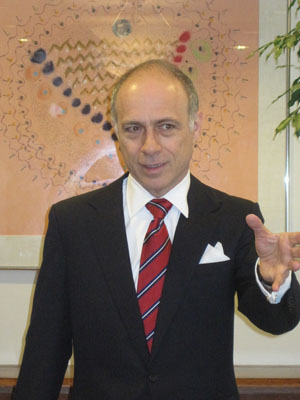
On the question of privacy, do you think there should be any difference between an education that is privately paid for and an education that is publicly paid for?
Howard: At public universities, it is already understood that anything you write on your university email is subject to inspection, perhaps without notice. And so employees at such universities are forewarned. Those of us at private universities thought that a different set of rules applied; I certainly did. Note however that private education is also publicly paid for, not only by grants to students but also by its tax-free status, and so the once assumed privilege may gradually disappear. That cuts directly into the heart of the academic enterprise, which has assumed trust, intimidad, comunidad, and a moral basis.
Is there a distinction you would make between privacy protections and rights for a paid employee (such as a faculty member) versus a student who is paying customer of the university?
Alan: Very generally, you violate a person’s right of privacy when you obtain personal data on that person when he or she is in a situation in which it is reasonable to have an “expectation of privacy.” Someone taking pictures of you through your third-floor bedroom window while you are dressing for dinner is likely violating your right of privacy. If you stand in your bedroom window and shout to people on the street, sin embargo, what you say would not be considered private. La duquesa de Cambridge estaba sentado al aire libre cuando las tetas al aire fotografiada – en la terraza de una villa privada, y el fotógrafo fue dicho para ser colocado lejos, on a road. Does a famous person in a private space have an expectation of privacy when visible only with professional-grade optics from a considerable distance? Many believed so. Most institutions take the position that there is no expectation of privacy when communicating via their email systems. Vale la pena señalar que adoptan diferentes posiciones acerca de los teléfonos: usted tiene el derecho de esperar que su llamada no está siendo controlada o grabada. La distinción se basa en parte en el hecho de que el correo electrónico es un registro escrito permanente, uno que podría someter a la institución de la responsabilidad. La institución debe tener una claramente articulada, política publicitado y los sistemas de información de fácil acceso en cualquier caso. Howard: I think that all members of a community should be equally protected. Curiosamente, the Harvard administrator who defended the practice of looking at the mail of the resident deans said that the University did it to protect the privacy of the student. That argument did not work for me; in fact I think it is a specious argument designed to rally support from students and parents. I think it is equally important to protect the privacy of staff, facultad, and administrators. By the way, one faculty member pointed out that administrators should be considered staff and therefore should have their emails inspected. Excusado es decir que, that provocative argument would not go well with administrators at Harvard or any other place.
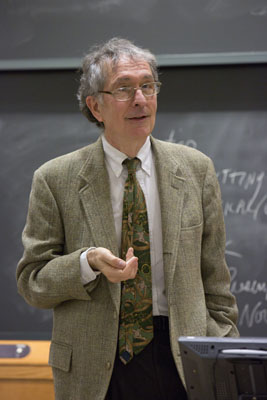
From an ethical, and/or legal perspective, what do you believe is the right course of action for the Harvard administration to pursue following an incident such as this, to maintain both Harvard’s legacy as an academic leader and its integrity as a moral community?
Alan: The best thing to do is to have a clear, unambiguous information systems policy and to enforce it uniformly. You can make the rules different for faculty, students and administrative employees. Within each category, the policy should be evenly applied. Es todo acerca de la transparencia y la equidad: si la política dice que los correos electrónicos de los estudiantes están sujetos a ser leído, y los estudiantes correos electrónicos de sus padres a través de su cuenta de la universidad acerca de cómo hizo trampa en un examen, él no puede quejarse si ese email le incrimina. Howard: I agree absolutely with what Professor Rakesh Khurana of the Harvard Business School wrote to me. Cito aquí con su permiso. “Como investigador comportamiento organizacional, enseñamos casos como esto una y otra vez. Y sin embargo,, no importa cuántas veces, la gente parece repetir el mismo error. Parece que uno de los campos más simple de acciones que habrían terminado esto habría sido una simple disculpa: “Estábamos bajo mucha presión en una situación que no teníamos experiencia con. Hicimos una cuestión de criterio. Parecía correcto en el momento. En retrospectiva, que fue un error. Queremos asegurar a la comunidad que algo así no vuelva a suceder.” En lugar, lo que nos dieron fue la argucia y la jerga legal que, aparentemente, la junta de administración detesta cuando se oye de estudiantes misma–no sense of personal accountability; splitting hairs; hiding behind technicalities, etc.” Más generalmente, after a genuine heartfelt apology along the lines suggested by Professor Khurana, I would say that the University needs to make it clear that it will follow a course that is much more respectful of the rights of all members of the community henceforth, and that it will try to embody in its actions what it means to be a trusting ethical community. Particular organizations, institutions, and professions do differ in the extent to which they embody trust, ethical behavior, a sense of community. As the best known and wealthiest university in the world, Harvard has a special responsibility to embody these virtues. Harvard’s reputation has deservedly been thrown into question by the events of the past year, as have the reputations of other schools that have experienced sexual harassment, ethical and racial slurs, drunken binges, misrepresentations to rating agencies, etc. Unless these institutions make extraordinary efforts to show that they are attempting to repair these injuries and to heal the community, they will lose the respect in which they were held for many years, and post-secondary education in the U.S. will be in jeopardy. How ironic it is that our liberal arts and science institutions have long been admired world wide, and yet they now could be undermined from within.
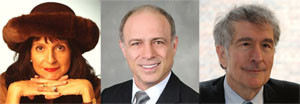
Photos courtesy of Harvard Graduate School of Education and Phillips Nizer LLC.
En La Búsqueda Global para la Educación, unirse a mí y reconocidos a nivel mundial los líderes de opinión, incluyendo a Sir Michael Barber (Reino Unido), DR. Michael Bloquear (EE.UU.), DR. Leon Botstein (EE.UU.), Profesor Clay Christensen (EE.UU.), DR. Linda Darling-Hammond (EE.UU.), DR. Madhav Chavan (India), El profesor Michael Fullan (Canada), El profesor Howard Gardner (EE.UU.), El profesor Andy Hargreaves (EE.UU.), Profesor Yvonne Hellman (Países Bajos), Profesor Kristin Helstad (Noruega), Jean Hendrickson (EE.UU.), Profesor Rose Hipkins (Nueva Zelanda), Profesor Cornelia Hoogland (Canada), Honorable Jeff Johnson (Canada), Señora. Chantal Kaufmann (Bélgica), DR. Eija Kauppinen (Finlandia), Secretario de Estado Tapio Kosunen (Finlandia), Profesor Dominique Lafontaine (Bélgica), El profesor Hugh Lauder (Reino Unido), Profesor Ben Levin (Canada), Señor Ken Macdonald (Reino Unido), Profesor Barry McGaw (Australia), Shiv Nadar (India), Profesor R. Natarajan (India), DR. PAK NG (Singapur), DR. Denise Papa (Estados Unidos), Sridhar Rajagopalan (India), DR. Diane Ravitch (EE.UU.), Richard Wilson Riley (EE.UU.), Sir Ken Robinson (Reino Unido), Profesor Pasi Sahlberg (Finlandia), Andreas Schleicher (PISA, OCDE), DR. Anthony Seldon (Reino Unido), DR. David Shaffer (EE.UU.), DR. Kirsten Immersive Are (Noruega), Canciller Stephen Spahn (EE.UU.), Yves Theze (Lycee Francais EE.UU.), Profesor Charles Ungerleider (Canada), Profesor Tony Wagner (EE.UU.), Sir David Watson (Reino Unido), Profesor Dylan Wiliam (Reino Unido), DR. Marcos Wormald (Reino Unido), Profesor Theo Wubbels (Países Bajos), El profesor Michael Young (Reino Unido), y el profesor Zhang Minxuan (De China) a medida que exploran las cuestiones de educación cuadro grande que todas las naciones se enfrentan hoy. La Búsqueda Global para la Educación Comunitaria Página
C. M. Rubin es el autor de dos ampliamente leído serie en línea por la que recibió un 2011 Premio Upton Sinclair, “La Búsqueda Global para la Educación” y “¿Cómo vamos a Leer?” Ella es también el autor de tres libros más vendidos, Incluido The Real Alice in Wonderland.



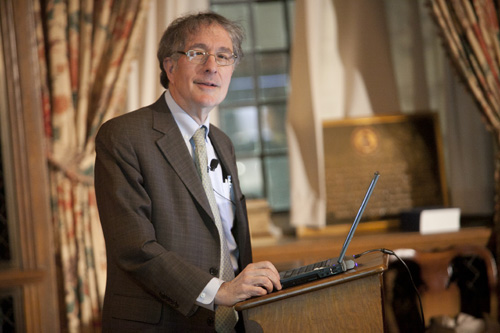
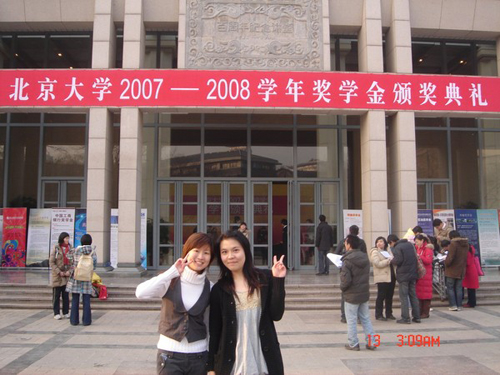
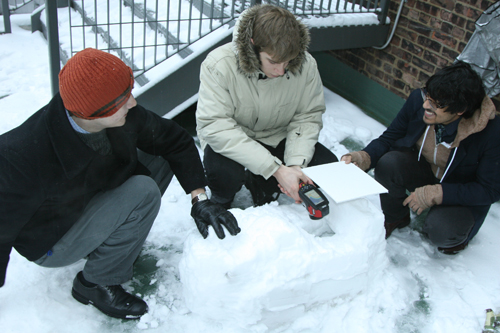
Comentarios recientes